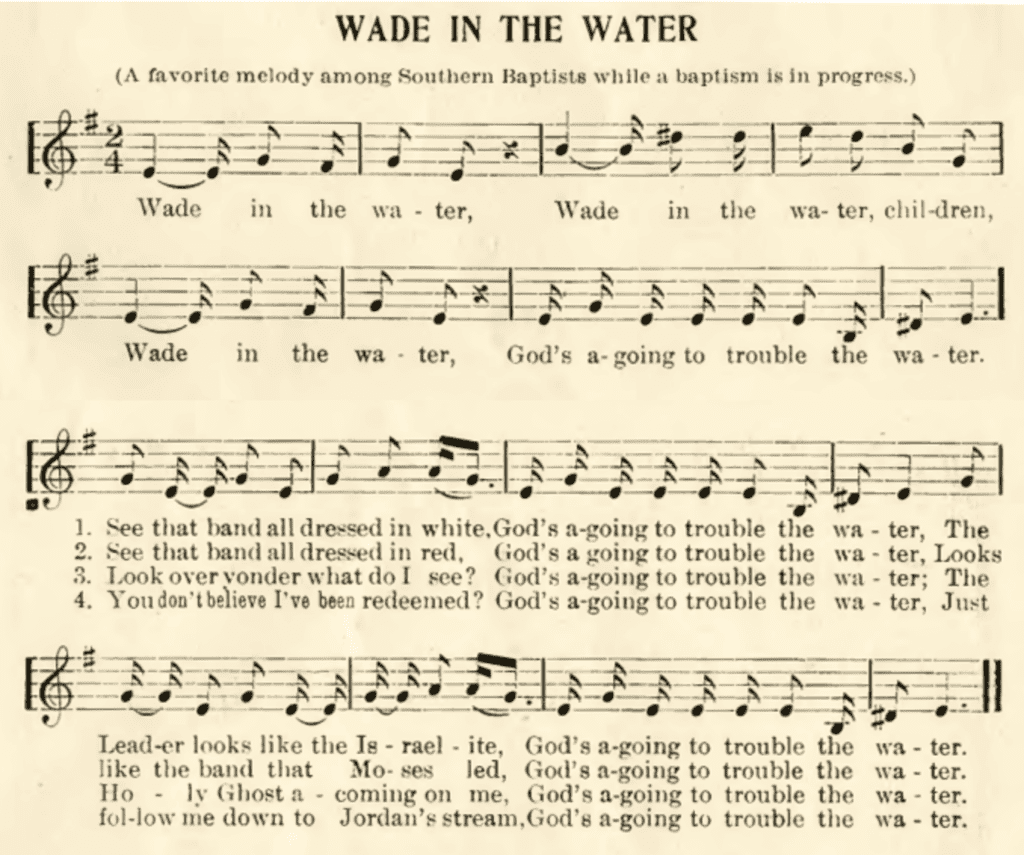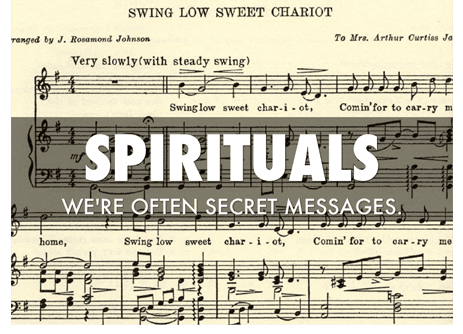May 4th, 2021| By: Alexis Bratton

There has been a great deal of debate surrounding the origin and role of African-American Negro Spirituals in American music. In order to alleviate confusion the unique sounds embody the faith and heart of black culture. Furthermore, spirituals are a definitive creation of music influenced by Western Christianity and the experience of enslaved Africans during the transatlantic slave trade. Unfortunately, African American Heritage has a habit of getting misconstrued and erased from history. Because of historical negligence and lack of recognition, the truth came relatively late for this category of music. Nevertheless clarity is found at the intersection of religion and defiance in relation to American slavery. Voices of the oppressed can be explored by analyzing the origin, lyrical and melodic structure, and the intended effect of these songs.
First, it is important to make the distinction between spirituals and hymns. While both contain a Christian religious premise. Concluding that spirituals evolved from European Christianity is another myth of the white superiority complex. It is an error that assumes that enslaved African’s abandoned their ancestral traditions and immediately adopted those of their oppressors. When spirituals should rather be considered an adaptation that integrates European Christianity with the quest to gain Black liberation and end suffering. Like folk songs it is a genre that encourages community participation. Maintaining the ancestral roots of oral tradition, mainly because slaves were forbidden to read or write. The faith is what drove Negro Spirituals to not only be a way for slaves to artistically express their connection to Christian beliefs. It established a sense of community amongst a displaced population that had a mixture of different tribal rituals and values to share a new common religious knowledge.
African Americans in this era had no autonomy over their bodies let alone freedom to practice ancestral religion and spirituality. It was common for slaves to be subjugated to only attend church services with the presence of a white minister to interrupt the Bible. As a form of resistance coded spirituals were used to signal secret congregations and services. Negro spirituals was not just entertainment, but was counted on as a way to rely hidden messages within the lyrics and melodies. Messages would often vary as a medium for teaching and learning; runaway routes, underground meetings, encouragement to fight another day and lessons from the Bible that were excluded from serous; such as Exodus. Melodies would follow a pattern of call and response, which made it easier for collective participation. Rhythms would often repeat and be slow in tempo emphasize the sorrow in society at the time. I believe that the slow, long phrases was just the preferred style back then to convey the messages clearly
Negro spirituals is a movement of music that gave birth to other proceeding genres like: Blues, Jazz, R&B, Gospel, Jubilee etc. Black cultural identity and survival is interwoven in the fabrics of Negro Spirituals. American music would not exist as society knows it today with the innovative men and women back then. Brave enough to forge a path of freedom within the constraints of North American slavery.



